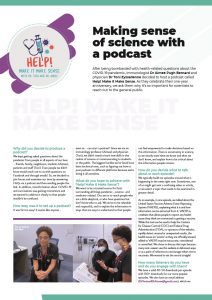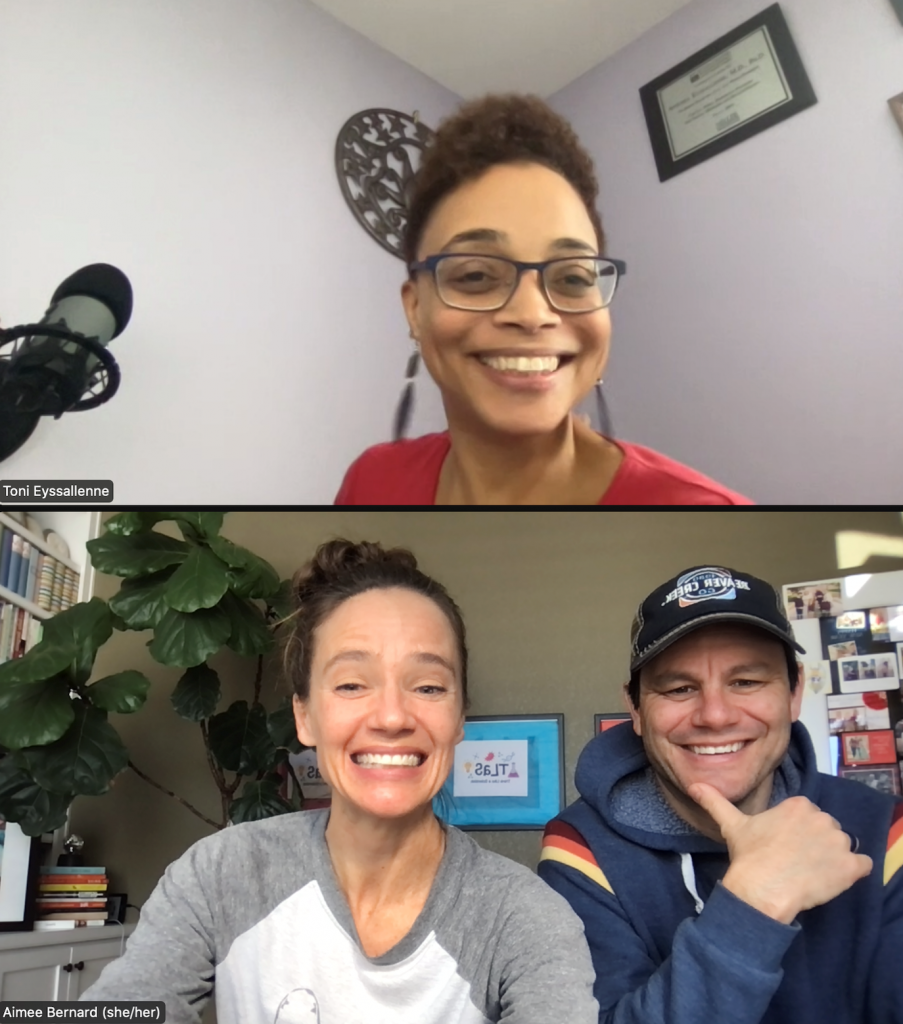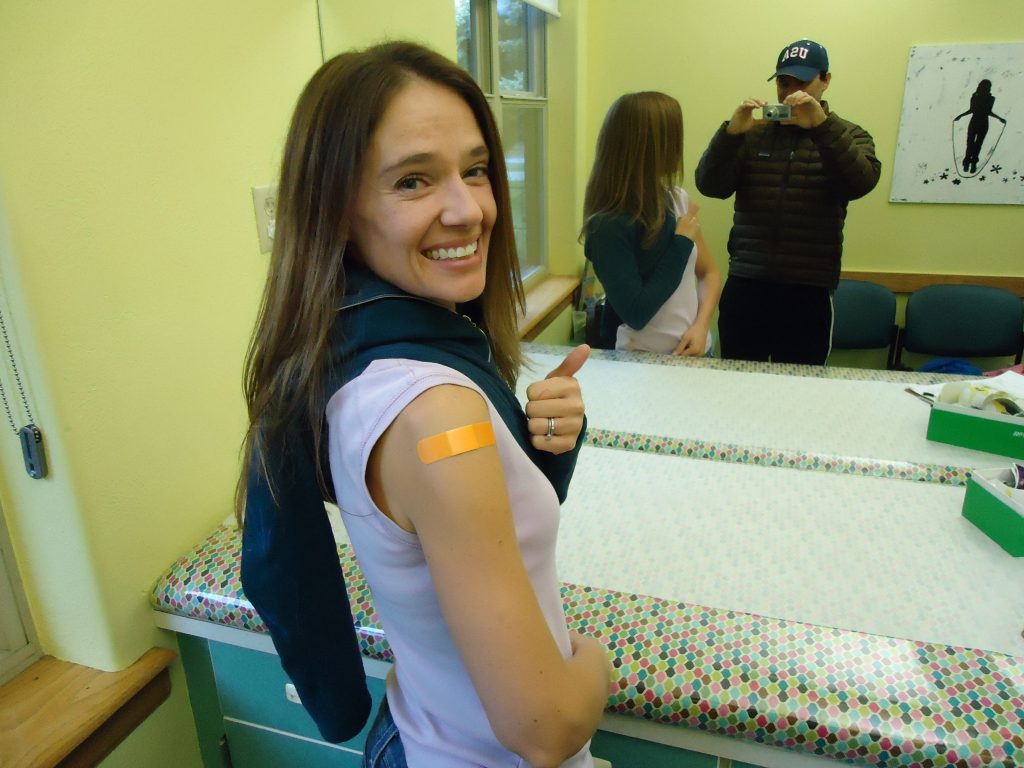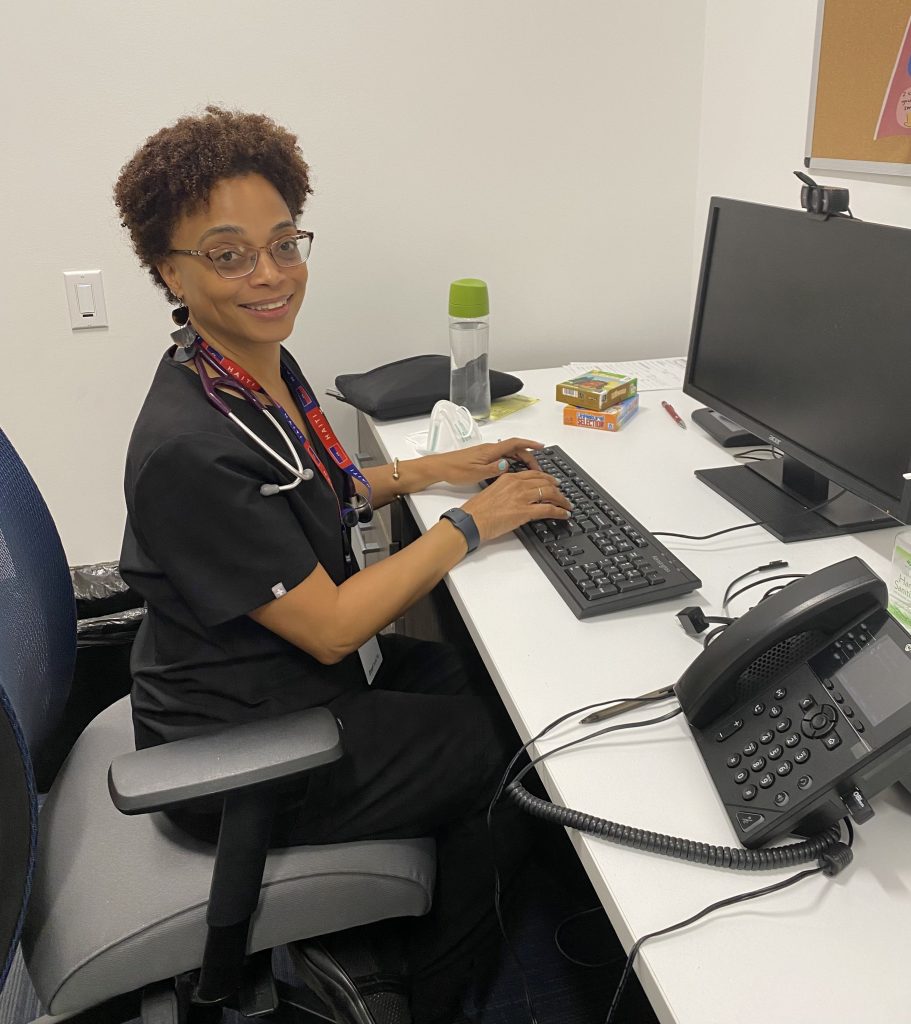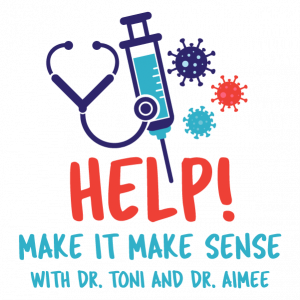Making sense of science with a podcast
After being bombarded with health-related questions about the COVID-19 pandemic, immunologist Dr Aimee Pugh Bernard and physician Dr Toni Eyssallenne decided to host a podcast called Help! Make it Make Sense . As they celebrate their one-year anniversary, we ask them why it’s so important for scientists to reach out to the general public.
Why did you decide to produce a podcast?
We kept getting asked questions about the pandemic from people in all aspects of our lives – friends, family, neighbours, students (Aimee), patients and staff (Toni). Even people we didn’t know would reach out to us with questions on Facebook and through emails! So, we decided to join forces and maximise our time by answering FAQs via a podcast and then sending people the link. In addition, misinformation about COVID-19 and vaccinations was gaining momentum and we wanted to address it clearly so that people wouldn’t be confused.
How easy was it to set up a podcast?
It was far too easy! It seems like anyone – even us – can start a podcast! Since we are an immunology professor (Aimee) and physician (Toni), we didn’t need to learn new skills in the realms of science or communicating to students or the public. The biggest hurdles we’ve faced have been technical ones, such as figuring out how to post podcasts to different platforms because we’re doing it all ourselves.
What do you hope to achieve with ‘Help! Make it Make Sense’?
We want to be a trusted source for facts surrounding all things pandemic-, science- and medicine-related. Our aim is to reach people who are a little sceptical, or who have questions but don’t know who to ask. We strive to be relatable and respectful, and to explain the information in ways that are easy to understand so that people can feel empowered to make decisions based on this information. There is uncertainty in science, so we clearly state what we know and what we don’t know, and explain how to be critical about the information people receive.
How do you decide what to talk about in each episode?
We typically build our episodes around what is happening in the news right now. Sometimes, one of us might get sent a confusing video or article, or we select a topic that needs to be examined in greater detail. As an example, in one episode, we talked about the United States Vaccine Adverse Event Reporting System (VAERS), explaining what it is and how information can be extracted from it. VAERS is a website that allows people to report any health issues they think are connected to getting a vaccine.
While this tool can be used to help the Centers for Disease Control (CDC) and Federal Drug Administration (FDA), co-sponsors of the website, rapidly detect unusual or unexpected results, the health issues (or ‘events’ as they are officially known) added to VAERS may be inaccurate, coincidental or unverified. We chose to discuss this topic because many anti-vaxxers use this website in dishonest ways or as a point of reference to encourage others not to vaccinate. We wanted to set the record straight!
How many listeners do you have and do you engage with them?
We have a solid 40-50 downloads per episode with 100+ downloads for our more popular episodes. We also have an email address ([email protected]), which we promote after every episode. If you have a health-, medicine- or science-related question, we would love to hear from you!
What has been your favourite podcast episode so far, and why?
It has to be ‘Don’t Cough on My Baby!’ That episode includes one of our favourite quotes of all time, when Aimee talked about “freshly coughed pockets of air”. It was in reference to the air we breathe, which we might believe is fresh and pristine but it’s also possible that one minute before, someone was hacking up a lung and releasing a “freshly coughed pocket of air” full of pathogens that you can’t see!
Do you think it’s important for scientists and academics to reach out to the public through podcasts?
Yes! We need to add more accurate information to the noise. Further, scientists really need to work on learning how to communicate with the public and leave the jargon aside. We try our best to explain the science in ways that make it easy to understand, so that people can make evidence-based decisions for their health and well-being.
What are your top tips for starting a podcast?
Tim was a fellow classmate in Toni’s medical school class at the University of Rochester, which is where all three of them met and became friends.
First, find a topic you are passionate about, love to talk about and want to spread to the world. Second, find a fun co-host that makes you laugh and have fun.
Other than your own, which podcasts would you recommend, and why?
Aimee: I love so many podcasts! For younger students, I would recommend ‘WOW in the World’, ‘Brains On’, and ‘Goodnight Stories for Rebel Girls’. For older students (high school and beyond), I would recommend ‘Short Wave’, ‘Science VS’, ‘Ologies’ and ‘This Podcast Will Kill You’.
Toni: I love ‘Science Vs’ and certain episodes of ‘Short Wave’. I also love ‘Beyond the Scenes’ with Roy Wood Jr., which takes a deeper look at the topics they present on the Daily Show, which are often about misinformation and the propaganda machine.
Listen to ‘Help! Make it Make Sense’
www.youtube.com/@helpmakeitmakesense6769
You can also find Aimee and Toni’s podcast on Google Podcasts.
If you have a question you would like answered on ‘Help! Make it Make Sense’, email:
Meet Aimee
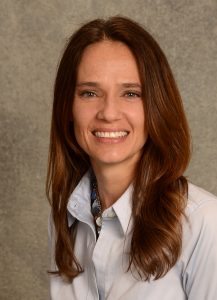
Executive Director, Human Immunology and Immunotherapy Initiative (HI3)
Assistant Professor, Department of Immunology and Microbiology, Anschutz School of Medicine, University of Colorado, USA
When I was younger, I thought about becoming a veterinarian until I realised I feel faint when I see blood. I still have to lie down when giving blood!
I always knew I loved science. I really liked my general biology course in high school but then I took an immunology course in college and totally fell in love with the subject. I knew that I wanted to dedicate my life to learning about the immune system. While in graduate school, I decided to focus on a career in education and teaching, aiming to become a professor so that I could teach others about immunology…. And here I am!
I don’t think education and experience can be separated – they are intimately intertwined. Part of a PhD involves hands-on experience designing experiments and answering scientific questions in a lab. After a PhD, you continue to design experiments and answer questions in a postdoctoral position under the guidance of the principal investigator (a.k.a. the boss) of the lab. All along the way, you’re being educated about the science and how to successfully contribute to research in your realm.
You must have grit and determination to succeed in science. Be sure you’re ready to persevere through immense failure. The life of a scientist is all about the little successes and wins amongst a lab notebook littered with failure. Repeating the phrase, “We learn more from our mistakes” is the mantra of any scientist. Embrace the failure and learn to celebrate the tiny wins!
Enjoy what you choose to do as your profession. Life is too short and too precious to waste your time doing something that doesn’t bring you joy. The most common feedback I get from the students I teach on the medical campus is how much they can tell I love immunology. This is a quote from one of my first-year medical students: “Dr. Bernard’s love for immunology is contagious. It is so fun to learn from her. She explains complex topics in simple, digestible ways. I love learning from her!”
Meet Toni
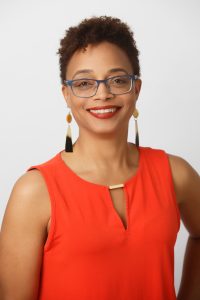
Physician and Operations Consultant, Strong Children Wellness
Senior Medical Advisor, New York City Department of Health and Mental Hygiene, USA
Like Aimee, I also wanted to be a vet when I was younger. Then, when I was 12, my dad said that my talents would be better served to help people and that changed my whole life.
I basically let the wind take me where it wants to go. I learned in college that you can have a plan but you also have to be flexible. There will be unexpected events and it’s important to not let them deter you from your ultimate goal, but to use them to give you more experience and become a better and wiser person.
Being a first generation Haitian-American, I have always wanted to be a physician in Haiti. I wanted to help build capacity for healthcare together with the brilliant minds that already live and work there, and I got the chance to do that. I still help support a Haitian residency in paediatrics that I helped set up and I do my best to participate in advocacy for Haiti and Haitian people as much as I can.
Education and experience have both been valuable to me. My education has enhanced my experience and career, my career has enhanced my experience and education, and my experience has enhanced my education and career. You need it all to shape the human being that you strive to become.
One piece of advice I wish someone had given me at the beginning of my career is that you don’t have to stay where you begin. Long gone is the age of dying at your desk or having to show that you have been at a place for 10 years before you move on. If a place doesn’t serve you, leave – even if it is the place that gave you your start in life. You can appreciate the opportunity without having to sacrifice yourself because no one is irreplaceable – literally, NO ONE! So, don’t believe the hype. Stay if you feel valued and fulfilled but don’t stay because you’re worried that you won’t find a comparable job or salary. You have worked too hard not to have options, so don’t be afraid to seek alternatives even if you have only been somewhere for a year.
My philosophy in life is to ask myself every day whether what I’m doing contributes to making the world a better place. Every activity, every emotion, every effort has to bring me somewhere that I feel goes towards changing or affecting in some way shape or form the injustices that pervade our society. So, if I’m mindlessly watching TV and I’m not clear as to why I’m doing that, I’ll stop. If I’m mindlessly watching TV and I know I’m doing it to give my brain a break so that I can recharge, then I’m happy to continue until I feel recharged to continue the fight towards equity in the world.

